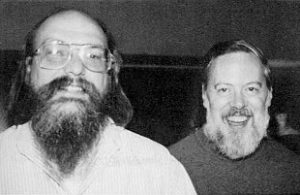In 2008, Ross Ulbricht was a libertarian with an altruistic attitude, who had a dream of getting rich on his way to doing something meaningful with his life.1 At first, this dream was in the form of a television series The Amazing Race; one summer away from college Ross would film auditions for the show with his sister.2 He marveled at the thought of making half a million dollars only because he did not know what his future had in store for him. But television was not in the cards for Ulbricht. Instead, he developed an idea, based on his belief that illicit drugs should not be illegal; he believed that if people were allowed to smoke, and thus harm themselves, they should be allowed to choose to put drugs into their bodies that could also potentially harm them.3 Ross himself was not a user of illegal drugs, but he believed that people had the right to use them if they pleased. This way of thinking led him to the idea of creating a place where people could to buy illegal substances without the government having any clue; this place was called The Silk Road. Ross did not know it yet, but he was on his way to creating a website that would allow people to buy and sell anything legal or illegal (in fact, mostly illegal) on a website without being traced. Customers would buy a product and it would arrive to them via the United States Postal Service, hidden behind an envelope or a box. Of course, the site had to be well hidden, so he turned to the place where the lines of morality are blurred and where laws are nonexistent, to the Dark Web. An online acquaintance by the name of Arto provided Ulbricht some insight. Arto showed Ulbricht that by using the web browser Tor any user who wished could slip through the nooks and crannies of the internet anonymously and untraceably.4

The Tor browser unveiled the means by which customers would reach Ross’s Amazon of drugs.5 But there was a problem; since the whole point of his website was for people to buy illegal drugs without being traced, how would his customers pay for their purchases? In 2011, there was no form of cash online for the internet, because the only way to make transactions was through credit or debit cards, which are extremely traceable. This was a huge concern for Ulbricht, until he read about something called Bitcoin. Bitcoin is a type of currency used online that could be traded for dollars much like trading cash for coins at an arcade. Anyone can buy bitcoins. One can buy bitcoins by using a credit or debit card, and then once one has bitcoins, one can use those bitcoins just like cash, online, just like dollars and cents, and not be traced.6
This amazing new process was exactly what Ross needed to complete what he started. Now that everything was coming together, Ulbricht still needed a startup item that he could sell. He began growing psychedelic mushrooms in a rundown apartment that only he knew about. After producing hundreds of pounds of this product, he was now ready to launch his site.7 Before the launch of his site, Ross needed a username that would separate him from his identity online. Without this separation, anyone would be able to know that Ross was connected to The Silk Road, particularly the police. So he came up with Dread Pirate Roberts (DPR), from the comical film, The Princess Bride. With that, he was now ready to be a player on The Dark Web.
This Dark Web is not the same internet that we use today on a day-to-day basis. These websites are so hidden from the public that someone must know exactly what they are looking for in order to find it, which was another obstacle that Ross was up against. He needed to bring would-be customers to his largely hidden website. So Ross would go to specific sites where people would blog about buying drugs online, and, under an anonymous name, he would bring up the existence of something called The Silk Road, and explain carefully how they could find it. This process was tedious, but people would eventually start making their way to his site. He began selling shrooms like crazy, and he was starting to make a large sum of money, when some other online drug dealers started to sell their products on his site as well. Anyone could create an account and sell what they wanted, much like Craigslist or Ebay, where people can post items to sell. Pretty soon The Silk Road was the premier place to shop for heroine, cocaine, weed, and more.8 Because Ross took a commission from each sale, he began making from tens of thousands to millions from his site.
The site was becoming so large that Ross could not control everything he was administrating. He needed to hire employees to help run the site and keep security at a maximum. One of those assistants he hired was a man named Curtis Green, who lived in Utah. Curtis had been helping Ross with the site, and one day he was arrested in a cocaine deal. This was very troubling to Ulbricht and he was considering what steps he had to take to ensure his safety when he noticed that he was missing upwards of three-hundred-thousand dollars. He believed that Curtis had been stealing his money. This was a big deal because, if Curtis was able to steal his money, then any experienced hacker out there had similar access to his money pile. Ulbricht had to make an example of Green, but how? In an online chat he had with a mentor, who was experienced in the drug market, Ross said, “I would have no problem wasting this guy.”9 In order to have a hit put on Curtis, Ross began speaking to a man under the username Nob online. Nob informed Ross that he knew a way to get to Green.

Agent Carl Force of the DEA had been tasked with investigating The Silk Road and to find the man behind it. Carl had been on the case for a while and managed to create an account on the site, in order to retrieve more information. The username he went under was Nob. He had recently been able to chat with the infamous Dread Pirate Roberts about a cocaine dealer he would recommend. DPR gave him the information of a dealer in Utah. The dealer was an employee of the website and was exactly the lead that Carl needed. Carl and a secret service agent who worked with the NSA, named Shaun Bridges, stalked Curtis Green’s house, waiting for evidence for them to go in. The package arrived and Curtis brought it into his house. As soon as he closed his garage door, Carl and his team headed to his house.10

Shaun Bridges, an experienced hacker, managed to log into The Silk Road posing as Curtis Green. Then Shaun proceeded to steal three-hundred-fifty thousand dollars from Dread Pirate Roberts, leading to Ross’s panic. As Nob, Carl spoke to DPR about having Curtis taken out, and it was in a hotel room where Green was staged to have been beaten and killed, Carl filming it all. Carl then sent their evidence to DPR, and Ross thought that that was the end of it, but this encounter was just the beginning of Ross’s problems.
Chris Tarbell was an FBI Special Agent working out of New York. He was part of the cybercrime team that led to the capture of many dark web criminals. He had just recently taken down the LulzSec hackers, who were responsible for many high profile attacks, such as the attacks on PayPal, Visa, and MasterCard.11 In a local bar that he and his team went to regularly, the bartender asked him what was next on the list, and sure enough, it was The Silk Road. For a long time, Tarbell had no idea how to crack The Silk Road, until some servers in Iceland, which were potentially connected to The Silk Road, were seized. After bickering with the Icelandic police to give them all the information they had, Chris received a grey thumb drive in the mail. On it were the potentially encrypted Silk Road servers. If the servers were encrypted, nothing could be done. Tarbell hoped and prayed that it wasn’t the case, as he was on his way to Thom Kiernan, a computer scientist co-worker. Thom worked hard to get as deep as he could into the folders, only to see many strings of random characters and numbers—they were indeed encrypted. This was the end, Chris thought, as he called and told his source from Iceland. Fortunately, his source had forgotten the key component to the lead: the passcode. Tarbell went back to Thom and asked him to insert the characters”trytocrackthisNSA.” This unlocked the final piece of the puzzle. Inside the servers were IP Addresses, potentially the one of Dread Pirate Roberts. An IP address is specific to a network router or computer, and it allows hackers to see a specific computer, and it is extremely traceable.

It was not long before Tarbell and his FBI team were able to see that Ross frequently visited a library in San Francisco to do work on the site. Ross had made an escape plan for Dominica in case he ever was in danger, but he was completely unaware on the afternoon of October 1, 2013 at the Glen Park Library. When arresting a hacker, the laptop must be opened and unlocked in order to have any evidence, because most hackers encrypt their computers, which even the FBI’s best supercomputers would take thousands of years to crack. Unfortunately for Ross, he was unable to close his laptop. The FBI found millions of dollars worth of Bitcoin on his laptop and even more at his apartment on two thumb drives. Due to the overwhelming evidence against Ulbricht, he was given two life sentences. Ross is currently in prison with no chance of parole.12
- Nick Bilton, American Kingpin: The Epic Hunt for the Criminal Mastermind behind the Silk Road (London: The Penguin Group, 2017), 25. ↵
- Nick Bilton, American Kingpin: The Epic Hunt for the Criminal Mastermind behind the Silk Road (London: The Penguin Group, 2017), 23. ↵
- Nick Bilton, “Brave New Underworld,” Vanity Fair Volume 59 (2017): 69. ↵
- Nick Bilton, American Kingpin: The Epic Hunt for the Criminal Mastermind behind the Silk Road (London: The Penguin Group, 2017), 43. ↵
- Nick Bilton, “Brave New Underworld,” Vanity Fair Volume 59 (2017): 70. ↵
- John Pavlus, “The World Bitcoin Created,” Scientific American Volume 318 (2018): 32. ↵
- Nick Bilton, American Kingpin: The Epic Hunt for the Criminal Mastermind behind the Silk Road (London: The Penguin Group, 2017), 45. ↵
- Nick Bilton, American Kingpin: The Epic Hunt for the Criminal Mastermind behind the Silk Road (London: The Penguin Group, 2017), 56. ↵
- Nick Bilton, “Brave New Underworld,” Vanity Fair Volume 59 (2017): 72. ↵
- Nick Bilton, American Kingpin: The Epic Hunt for the Criminal Mastermind behind the Silk Road (London: The Penguin Group, 2017), 185. ↵
- David Siegfried, “We Are Anonymous: Inside the Hacker World of LulzSec, Anonymous, and the Global Cyber Insurgency,” Booklist Volume 108 (2012): 19. ↵
- United States v. Ulbricht (United States Court of Appeals for Second Circuit 2017). ↵



87 comments
Joshua Castro
This article was extremely fascinating! Prior to reading this I have heard about the dark web and bitcoins, but not to this extent. I was completely surprised to find out that someone, such as Ross Ulbricht, is able to earn such a large amount of money by running an illegal website. I was also unaware that hackers have their computers protected with a code that the FBI wouldn’t be able to crack! This was a really fun and interesting read!
Hector Garcia
Ross Ulbricht was an online drug dealer, but you have to admit that the software he developed was years ahead of the FBI or NSA. I would have to say that it was a great article because it kept me in suspense on what was going to happen to Ulbricht. I am also glad that the FBI was able to catch up to this criminal and put him behind bars. But sadly, The Silk Road sprouted a new type of drug distribution that hackers use to this day.
Regina De La Parra
This is a very well made article with lots of interesting facts. It is crazy to think how much you can do with the internet right now, both good things and bad. I can imagine how much work those working with the internet and those concerned with cybersecurity must have done to reduce this problematic issue. I wonder how other people continued with this web page or if it was closed, how many more pages opened because of him. Great article Nathan!
Isaac Rodriguez
I had known that Ross Ulbricht was imprisoned because of The Silk Road, but I was not aware that he had attempted to have his former assistant murdered. I do think that the two life sentences seem excessive considering that he didn’t actually murder anyone. If you want to learn more about the “dark web,” I recommend watching the move Dope, directed by Rick Famuyiwa.
Destiny Leonard
What an interesting article. Prior to reading this article I had always known that the dark web was a place where people can purchase illegal substances without them being traced to the buyer, yet I never realized that this was one of the many ways in which it was achieved. With the creation of the silk road the purchase of illegal substances became a much more feasible option for people to purchase items while making it difficult for the government to track them. Its amazing how much the different change in events has influenced the way this man was able to create the silk road.
Miranda Alamilla
This article is very unique. I was kind of confused at first, but as I kept reading, I understood more about the dark web and even about bitcoin (which I was really confused about). The creator of the silk road, Ross Ulbrich, wanted to get rich and found just the way to do so through the dark web. It’s astonishing how well he covered his tracks and how long to for him to get arrested. It’s crazy to think that someone could get so rich off of such illegal things. Great article.
Caroline Bush
Wow this was a really interesting article! I had heard about the dark web In the past but I never knew about the creator of the silk road. while I do agree that what Ross did was wrong I am kind of amazed at the amount of time it took for him to get arrested due to his work on hiding his trail. I also enjoyed learning more about bitcoin because its a topic that I don’t understand very well. Overall I really enjoyed this article and found myself interested until the end, really good job.
Jonathan Perez
This article discusses a very interesting topic and kept my attention throughout it. The author did a good job of explaining most aspects and terms that people may not have understood that were key elements of Ulbricht’s methods such as bitcoin and the dark web. What I found most interesting about the article was the investigative portions that discussed the cooperation of the government agencies to bring Ulbricht down. The only critique I would have is that the conclusion of the article seemed a bit rushed but overall it was well written and an excellent read.
Michael Thomas
I found this article interesting because of how it details the events that led to Ross Ulbricht’s arrest for selling illegal drugs on the internet, or the dark web. I thought Ulbricht was paranoid when he saw that he was missing thousands of dollars from his sales. He had his escape and his finances ready in case anything went wrong. He never knew that the FBI was keeping track of his movements. In the end, he was caught in the act.
David Gambone
Eye opening revelation into the world of the ‘dark web’ which many of us aren’t sure really exists or why.
Now we know! The writers fact punctuated & footnoted style, exposes how technology & creativity are used to advance ones interest—in this case criminal. The explanation of how bitcoins fit in the puzzle was climatic. Superb writing.